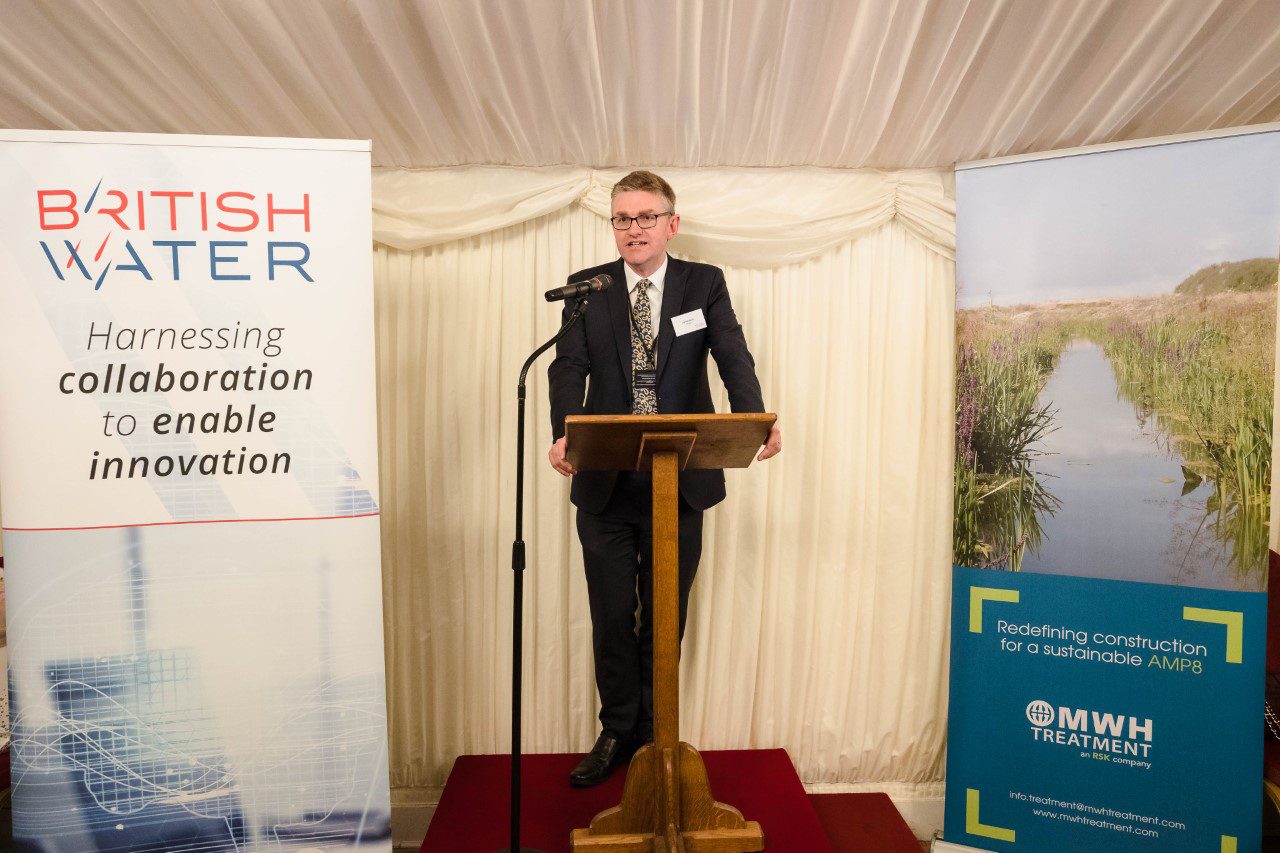
Major infrastructure improvements in the water sector in PR24 will require companies to better demonstrate how any increase in water bills will benefit customers, said David Black, chief executive of Ofwat, at a British Water reception held at the House of Lords on 27 April 2023.
The reception, now in its 16th year, was hosted by Baroness Brown of Cambridge, who is chair of the Climate Change Adaptation Committee, which advises UK Government on climate risks and opportunities. The keynote speaker was David Black, chief executive of industry regulator Ofwat, who outlined what lies ahead in the 2024 Price Review (PR24) and his expectations for the water sector.
The importance of a “step-change” in climate change adaptation was the overarching message from Baroness Brown: “In March this year the adaptation committee put out its biannual report on how well adapted the UK is to the changing climate. As the UK government is publishing the third national adaptation programme in the summer, we decided to put out the report early to encourage the government that its new national adaptation programme needs to be very different and mark a step-change.”
Brown explained the committee’s most recent report looked at 13 sectors across the UK economy – one of which was the water sector. Positively, in the adaptation committee’s assessment of preparedness, the water sector’s policies and plans for service management ranked first.
However, she said, there was still much to done. She noted that only two of the 17 UK water companies in England met the water metering targets, and 16 out of 17 did not meet the commitment on reducing customer demand for the second year running.
Brown warned that the UK water sector is unprepared for climate changes already occurring:
“Last summer showed us that we are not adequately prepared. When we got 40-plus degree temperatures in the UK we had record deaths, wildfires, droughts and significant infrastructure disruption, and that will only get worse.”
Brown stated the recent Intergovernmental Panel on Climate Change (IPCC) AR6 Synthesis Report delivered a clear message: immediate and bold action is essential to avert a climate crisis, as current efforts are falling drastically short.
“We need to take action now and design in resilience from today. Everything we do has to take on board the climate we are going to have in the future, as well as the climate we are experiencing today.”
David Black described what Ofwat is doing to help enable and drive transformation and rebuild trust in the sector, as well as the importance of the supply chain in enabling transformation and how companies can use PR24 as a “springboard for change.”
“A world of social media polarised debates, growing data and increased transparency on performance, means the new normal for the sector is intense scrutiny and a rise in expectations for water companies to provide resilient essential services while protecting the environment,” said Black. “It’s clear that significant transformation is needed, as the sectors relationship with customers and the environment is not where it needs to be.
“The sector is expected to step up environmental performance, improve resilience and asset health at a time when customers are facing a cost of living crisis. It is clear large-scale investment is needed to improve the sector and Ofwat’s assessment in the last price review [PR19] showed several companies were behind on the delivery of their plans.”
Black said Ofwat was committed to working with other regulators such as the Environment Agency and Drinking Water Inspectorate, and organisations like the Consumer Council for Water, to help water companies improve performance. Ofwat recently published its proposal to accelerate £1.6bn in PR24 investment, including work on storm overflows and increasing smart metering.
Meanwhile, the regulator has gained new powers under the Environment Act, which will enable it to stop dividends where it threatens company resilience and to require companies to link payment dividends to customer and environmental performance. Ofwat is also progressing 12 water resource schemes, including three new reservoirs.
“We know there are growing concerns about vulnerability and affordability, the rise in inflation and the fallout from the pandemic have had a long-term impact on many households. We hope to see water companies look for more innovative ways to make bills affordable as it’s clear from the PR24 price review that there needs to be major investment.
“Companies will be making a case for bill increases to improve performance and meet long term targets and this will be taking place in an environment of low public trust and the cost of living crisis. The sector will need to demonstrate that any increase in bills gives customers value for money.”
Hosting the event, Mark Fletcher, chair of British Water, reflected on the 30th anniversary of the organisation and praised the ongoing work of the UK water sector and supply chain during “a period of unprecedented change”.
“As a sector we have an opportunity to do things differently. There’s no greater time than now for us to work together to mitigate the causes of climate change, adapt to the impacts and build resilience for people and places.”
Around 180 guests attended the event, comprising member companies, sponsor partners and key industry figures. The event is held annually by British Water to help raise the profile of the UK water industry and address sector challenges.
British Water’s upcoming conference Addressing the Skill Gap on 22 June 2023 will see a variety of experts from within the water industry and adjacent sectors explore how to make the sector attractive to recruit and retain a diverse talent pool and commit to firm action







